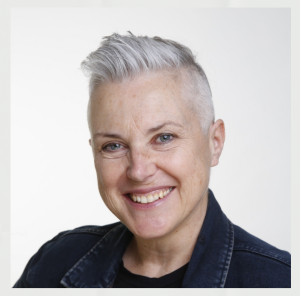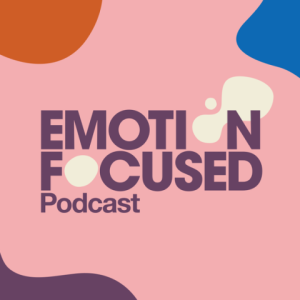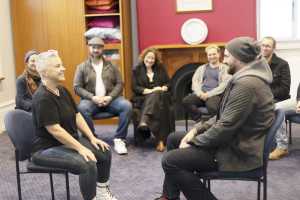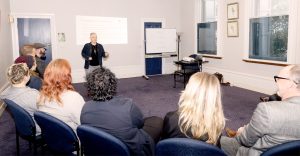Interview with Dr. Lou Cooper: Exploring Emotion-Focused Therapy and the Emotion-Focused Podcast


Dr Lou Cooper
Dr. Lou Cooper is the lead trainer at the Australian Institute of Emotion-Focused Therapy (AIEFT) and the host of the Emotion-Focused Podcast. In this interview, we explore Lou’s work with Emotion-Focused Therapy (EFT), the international experts featured on the podcast, and how the AIEFT is shaping the future of emotional well-being in Australia and beyond. Lou shares valuable insights into EFT, its applications, and the growing global community of EFT practitioners.
Q: Your podcast has become a go-to resource for both practitioners and those interested in learning more about emotions and Emotion-Focused Therapy. What inspired you to start the podcast?
 Lou: There wasn’t a podcast series dedicated to Emotion Focused Therapy, I discovered this when a client asked me to direct them to one. This inspired me to make a podcast that would fill this gap and let people know how important emotions are to our lives. As a therapist and trainer, I often meet people who don’t realise how powerful emotions are in shaping how we think and what we do. I wanted to create a platform where we could really dig into different aspects of EFT, share some practical tools and explore real-world examples of how emotions work. It’s also been an opportunity to guild a broader community of practitioners and learners who can benefit from these conversations.
Lou: There wasn’t a podcast series dedicated to Emotion Focused Therapy, I discovered this when a client asked me to direct them to one. This inspired me to make a podcast that would fill this gap and let people know how important emotions are to our lives. As a therapist and trainer, I often meet people who don’t realise how powerful emotions are in shaping how we think and what we do. I wanted to create a platform where we could really dig into different aspects of EFT, share some practical tools and explore real-world examples of how emotions work. It’s also been an opportunity to guild a broader community of practitioners and learners who can benefit from these conversations.
Q: One of the standout features of the podcast is the incredible lineup of international guests you feature. Could you tell us more about them and what these global conversations bring to the table?
Lou: Of course. I’ve had the privilege of speaking to a whole host of international and Australian people who have dedicated most of their professional lives to exploring emotions. The podcast is a platform for the voices of these incredibly insightful people to be heard. For example, Dr Leslie Greenberg, the primary founder of EFT, joined me recently to talk about how the experiences of shame and anger are connected. I’ve also spoken with Dr Rhonda Goldman, one of the co-authors of numerous books about Emotion Focused Therapy, who discussed the benefits of becoming aware of our internal critic and how tuning into the emotions it generates can be helpful. These conversations not only broaden our understanding of emotions and EFT but also highlight the universal nature of our emotional experience as we hear from voices from around the globe, reminding us that EFT can be adapted across different cultural contexts. Engaging with international thought leaders keeps us on the cutting edge of EFT practice, and allows me to bring a variety of voices to the world of emotions.

Q: How do these international perspectives influence the practice of EFT in Australia?
Lou: Engaging with experts from around the world helps us stay informed about the latest developments in EFT and ensures that we continue to refine our approach. It also stands as an invitation to all advanced EFT practitioners to engage in the dialogue. We learn from the diverse challenges and experiences other practitioners face in different settings, which helps us develop our understanding and practice.
Q: For those unfamiliar with EFT, how would you describe it and its core principles?
Lou: At its core, Emotion-Focused Therapy is about experiencing, expressing, understanding and processing emotions in a way that fosters healing and growth. Emotions are central to how we experience the world and play a key role in telling us what we need and what to do. EFT helps individuals explore and make sense of their emotions, which ultimately leads to better emotional regulation, healthier relationships, and greater well-being. The approach is humanistic, emphasising empathy, and it places a lot of importance on the therapeutic relationship. Ultimately as EFT therapists we aim to transform unhelpful emotions and help clients develop more helpful ways of ‘doing’ their emotions.
Q: You’ve been actively involved in training new EFT practitioners through the AIEFT. How does AIEFT contribute to advancing EFT in Australia?
 Lou: AIEFT plays a critical role in advancing EFT in Australia by providing comprehensive, internationally recognised training programs that equip both new and experienced therapists to work with emotions. The AIEFT has also created a community of trained professionals who not only support clients to honour their emotional experiences but also support each other in developing their EFT practice. Our training programs are designed to be both accessible and thorough, ensuring that therapists gain a deep understanding of the EFT approach. This, in turn, helps improve the overall mental health landscape in Australia by introducing more practitioners to this highly effective therapy.
Lou: AIEFT plays a critical role in advancing EFT in Australia by providing comprehensive, internationally recognised training programs that equip both new and experienced therapists to work with emotions. The AIEFT has also created a community of trained professionals who not only support clients to honour their emotional experiences but also support each other in developing their EFT practice. Our training programs are designed to be both accessible and thorough, ensuring that therapists gain a deep understanding of the EFT approach. This, in turn, helps improve the overall mental health landscape in Australia by introducing more practitioners to this highly effective therapy.
Q: Looking ahead, how do you see EFT evolving, both in Australia and globally?
Lou: I think we’re going to see EFT become even more commonplace in Australia, there seems to be an increase in interest in emotions. EFT is already gaining recognition for its effectiveness in treating a wide range of experiences, from trauma to relationship difficulties. It’s an exciting time for the field, and I’m really excited to be part of it.
Q: Finally, how can therapists listening to your podcast get involved with AIEFT’s training programs?
 Lou: We’d love to have more people join our EFT community! AIEFT offers all sorts of training opportunities, from one day workshops to more intensive programs. We also have membership for both new and experienced therapists. I really encourage people to have a look at the AIEFT website, there is a lot going on.
Lou: We’d love to have more people join our EFT community! AIEFT offers all sorts of training opportunities, from one day workshops to more intensive programs. We also have membership for both new and experienced therapists. I really encourage people to have a look at the AIEFT website, there is a lot going on.
To listen to Dr. Lou Cooper and their many guests discuss emotions, visit the Emotion-Focused Podcast Website or search for the podcast at your favourite streaming service. Also don’t forget to subscribe to the podcast to stay updated on the latest developments in the world of emotions. You can also find more information on AIEFT’s Emotion-Focused Therapy upcoming training here.


